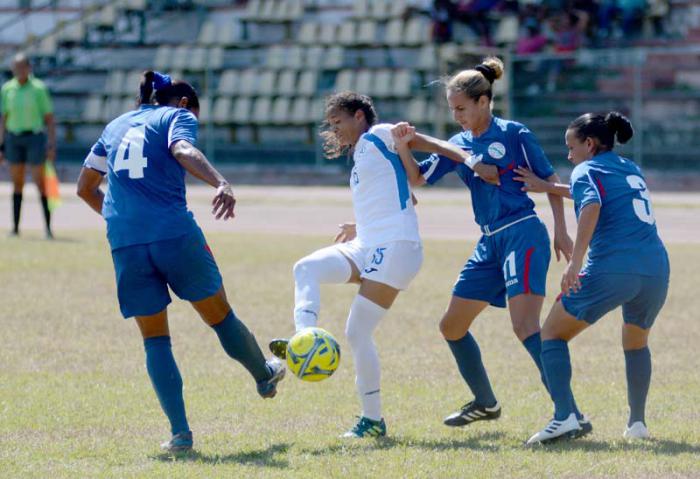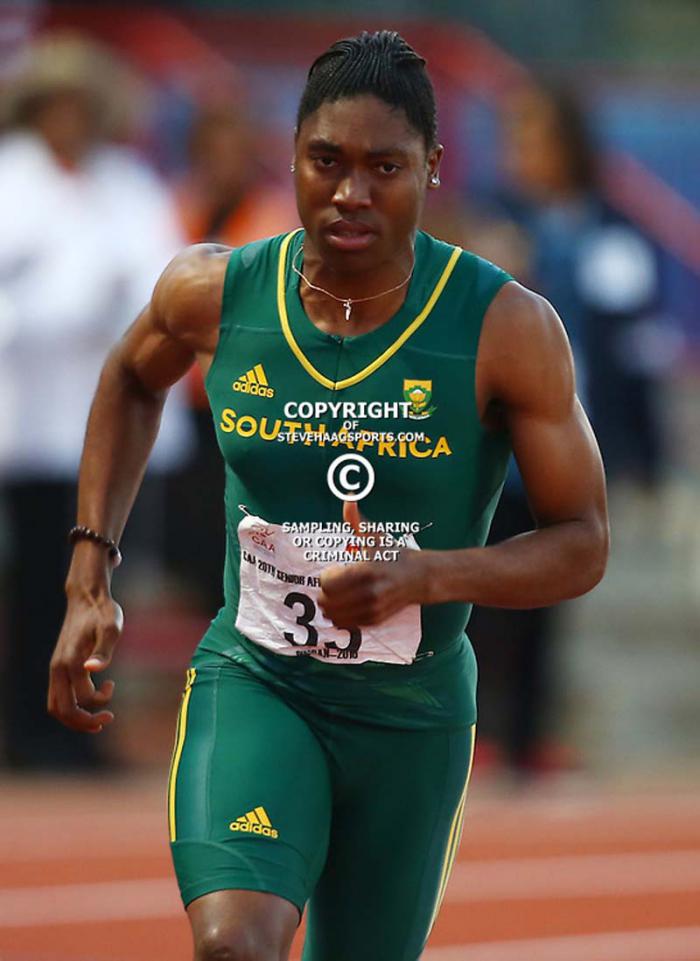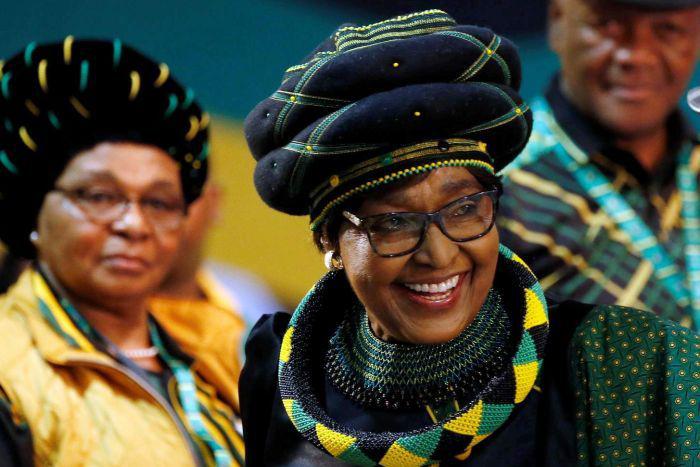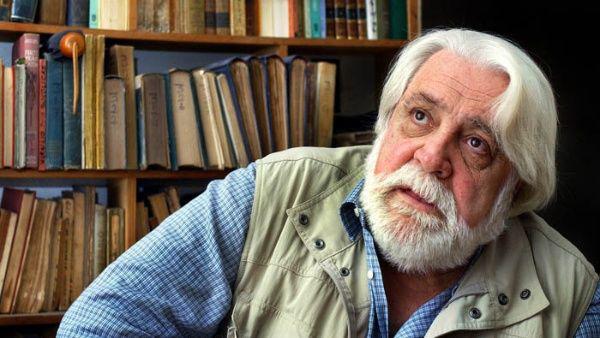Granma 299
School is for Everyone

School is for Everyone
“Cuba is a safe country, the Cuban school is safe, the family has confidence in it, and what we are looking for with these campaigns is to raise awareness, address concerns, and to provide education and guidance to the population,” Mariela Castro Espín, director of the National Sex Education Center, told Granma.
Author: Lisandra Fariñas Acosta | lisandra@granma.cu
May 15, 2018 20:05:41
A CubaNews translation.
Edited by Walter Lippmann.
Learn without fear. To make the daily lesson the realisable idea of having a space where to accept and respect, to listen to the other in peace; where mockery, mistreatment, punishment are crushed by dialogue, and security is never a chimera.
Say school, and you will have said that, and more, because you can’t think of this institution any other way. Efforts to eliminate all forms of violence in society, and particularly in schools, are therefore welcome.
This is one of the messages that the Cuban Conference against Homophobia and Transphobia is bringing us in these days. I’m included! For schools without homophobia or transphobia, which in its 11th edition – whose headquarters is in the province of Pinar del Rio – not only promotes respect for free and responsible sexual orientation and gender identity, as an exercise in social justice and equity, but also chooses a strategic scenario for it.
“Emotional violence and exclusion generate suffering, and it is not something that can be tolerated for any reason,” Mariela Castro Espín, director of the National Sex Education Center (Cenesex), told Granma.
There is an essential space, which could not be left out of this campaign that Cenesex organizes every two years, and that is the school, the interviewee confirmed, for whom she cannot lose sight of the fact that the causes of situations of violence are often interrelated.
“If we start from the fact that homophobia and transphobia are rooted in culture, institutional dynamics and relationships between people, which makes it difficult to make them visible as a social problem and their need for prevention, it can be easily understood that both phenomena are present in the schools, as a reflection of a changing social reality that requires more effective social action,” she explained.
Hence, the emphasis on these types of discrimination. This does not mean that the rest of the causes are not being addressed, but it is undeniable that we should focus on those areas where the “education” of homophobia begins, added Dr. Castro Espín.
“Cuba is a safe country, the Cuban school is safe, the family has confidence in it, and what we are looking for with these campaigns is to raise awareness, to address worries, and to provide education and guidance to the population, based on scientifically proven data in studies that we conducted in the Center and other institutions on the subject. They alert us to the need to make any of these expressions visible, in order to provide the appropriate response accordingly,” said the expert.
IN SEARCH OF TOOLS AGAINST VIOLENCE
According to academic sources at Cenesex, “studies of discrimination based on sexual orientation and gender identity in Cuba are still scarce and are not focused on homophobic and transphobic violence as categories of analysis, but on violence in general”.
“Only some research addresses violence that has its origin in the prejudices and stereotypes associated with gender roles, those that the dominant cultures assign to men and women in order to maintain a social order that services the economic interests of the ruling classes,” they say.
In this sense, Dr. Castro Espín explains that, in the case of children, they do not work with or handle concepts such as sexual orientation or gender identity, but rather that prejudices are exercised through the expression of gender, which is also constructed from what we educate as roles historically assigned to the masculine and feminine.
But it must be understood, she said, that homophobic and transphobic violence in schools affects all those who are in this situation: victims, perpetrators and witnesses.
It also has a significant impact on the physical and mental health and well-being of the educational community, and adversely affects access to education, academic achievement and job prospects. “These situations create a climate of insecurity, fear and discontent in the school community. They diminish confidence in educational staff and the institution, increase the risk of self-injurious behavior and hinder the construction of enriching and non-judgmental relationships,” say scholars.
“The positive emotional environment that the school must create is fundamental for learning,” said the specialist, who pointed out that the Cuban state’s educational policy has a responsibility to continue to promote the values of inclusion, not hatred.
“Hate is begins with adults, not children. They are the ones who educate or transmit the prejudices, so the campaign is strongly aimed at making this understood,” he said.
Today, one of the main challenges facing Cenesex is to find appropriate and effective teaching tools that allow students, teachers and their families to tackle these phenomena. It is also a response to UNESCO’s call for states to investigate and address bullying issues in the context of violence in schools, said the director of the center.
The role of comprehensive sexuality education as a basis for training to prepare for and prevent violence is critical, she added.
In line with this, Manuel Vázquez Seijido, Deputy Director of Cenesex, pointed out that Resolution 139 of 2011 is a legal norm issued by the Ministry of Education itself. It orders and introduces sexuality education from the curricular point of view. It is an educational element that can become a framework that guarantees schools without homophobia or transphobia, if these elements are emphasized in the formative process.
The issue, he said, is to protect the fundamental rights of individuals, and this implies a shared responsibility that must be assumed and articulated by all sectors of society.
NECESSARY AVENUES
In Cuba, according to Cenesex experts, research that has dealt with homophobic and transphobic violence in schools has done so indirectly, one of the axes of analysis being the school environment. Likewise, another common element in these studies in our country has been the fragmentation of the samples in the LGBTI population, which prevents the integrated analysis and systematization of the results.
In this regard, they argue that retrospective research, conducted with samples of adult LGBT activists, offers among their main elements: difficulties in the processes of adaptation and permanence of trans people in school because they do not accept the school uniform established according to their legal identity (Castro, 2015; Suárez, 2015). In addition, there are experiences of rejection, physical, verbal and psychological mistreatment of trans people by students and some teachers, because they do not accept their gender expressions (Castro, 2015; Suárez, 2015) Also, there is the inability to begin or continue higher education because of the contradictions between their gender expressions and institutional norms (Castro, 2015). Finally, there is the tendency towards social exclusion of trans people in educational institutions (Castro, 2015).
For example, out of a total of 160 people surveyed, from 12 provinces in the country, 142 have been victims of homophobic acts (Garcés, 2015).
On the other hand, studies carried out in some school spaces in Havana show the existence of physical and verbal abuse, situations of social exclusion, as well as the use of a naturalized homophobic and sexist language (Rodney, 2015).
Some clues about the above can be found in the progressive exploratory study on homophobic and transphobic violence in the school careers of Cuban LGBT activists, by the authors Delia Rosa Suárez Socarrás, Massiel Rodríguez Núñez, Marais del Río Martín, Ada Caridad Alfonso Rodríguez, Gisett Suárez Gutiérrez. Their results, although they cannot be generalized to Cuban society, do offer important warning elements to work with.
The retrospective and exploratory investigation, which aimed to characterize the homophobic and transphobic violence experienced by activists of the Community Social Networks during their trajectory for Cuban schools, had, as a sample, 90 activists from the following networks: Youth for sexual health and rights; Transcuba. Network of Transgender people, couples and families; Lesbian and bisexual women; Humanity for diversity (HXD); and Men who have sex with men (MSM).
According to the text, “the average age of the sample was 28.1 years with a trend of 22 years of age. Attendance was predominantly white (48), followed by mestizo (25) and black (17) people from the provinces of Havana, Villa Clara and Santiago de Cuba. Most of the people studied in the urban areas of their provinces and the external regime was predominant.
“Distribution by sexual orientation and gender identity as stated by the subjects was 38 gay men, 27 transgender people, 19 lesbian women, 5 bisexual women and 1 bisexual man.
“The schooling completed was concentrated in Secondary Education. At the time of the investigation, 25 people were in higher education, mostly gay men.
Among the elements of analysis that stand out in the results, the authors cite school dropout, while “22 subjects indicated that they had left school at some point in their school career, and only 9 returned, mostly trans people who sought to complete their secondary education”.
According to the research, “the average age of dropout was concentrated at 16.6 years of age at the end of secondary school, with trans people being the most represented. Of the 22 people who reported having dropped out of school, 13 referred to the fact that this decision was linked to the situations of violence of which they were victims in the school environment . They experienced physical abuse, their opinions weren’t listened to, threats against them weren’t listened to, or they were ignored, mocked, had their belongings, stolen, were insulsted, sexually abused, sexually abused, not allowed to wear the uniform they wanted, were left home, not allowed to participate in activities, contracted the HIV virus, or needed to work because the family did not cover their basic needs.
Trans people (9) are the ones who mostly refer to this experience, followed by lesbian women (3)”.
“The response of the educational institutions focused on the change of study regime or on the isolation of the victims: (…) the solution from the residences was to put us in semi-boarding schools, (…) the daily trips (…)”, some of the testimonies state.
“It should be noted that the measures implemented could be considered a form of revictimization, since it is the victims of violence against whom measures are taken and not on those who victimize them,” the authors point out.
Among those who perpetrated violence, researchers cite students, teachers, the victims’ own families, relatives of other students, teaching support staff and others.
Support networks within the school were practically non-existent, and there was a tendency to normalize the situations that occurred: (…) they are the work of boys, they should not be given importance (…) The support, in the cases in which it was present, came from students who intervened to stop the mistreatment, according to the study.
“Verbal aggressions coming from friends were not seen as forms of violence: (…) they told me that they could make jokes and play with me, but we did not allow anyone to play with you (…), while the attitude of the teachers was aimed at silencing the situations and placing the blame on the victims”.
Another element of interest is that the people affected decided not to report when they suffered violence due to homophobia and transphobia. Among the reasons for not making the complaint are: Not being prepared to make sexual orientation public: (…) I didn’t say anything because my family didn’t know about it (…) The immobility of the teaching staff results in impunity for the aggressors: (…) Even though you denounced the abuse, nothing happened (…) Fear of the consequences against double stigmatization: (…) if you made a complaint, they made fun of you because you were gay and a snitch (…)
“Such evidence shows that it is essential to sensitize student organizations to act as support networks for situations of violence in the school setting. It is vitally important to strengthen the training of teachers and non-teaching staff in the identification and prevention of homophobic and transphobic violence,” the Cenesex experts say.
It so happens that homophobic and transphobic violence in the school setting reflects homophobia and social transphobia. “Preventing and confronting these manifestations of discrimination in schools contributes to guaranteeing one of the principles of the National Education System in Cuba: access to education free of discrimination. Thus, it will be necessary to promote, not only specific policies and regulations, but also social and cultural changes, which are expressed in subjectivities and therefore in the relations between people,” says the campaign of the 11th edition of this Conference.
Nothing compares to always, and without exception, listening to children and young people in Cuba, who say that they like their school, because fear has no place in it.
==================================
COMMENTS ON WEB:
Very enlightening interview with Mariela and the information she provides on the few studies that have been done on the subject. However, I believe that in addition to raising awareness in the aftermath, it is also necessary to raise awareness and educate the family, mainly parents, about the way in which they should deal with situations that may arise with their children and to give them tools, especially to parents of primary school children, to explain to them according to their age how to treat and accept and not to discriminate and to give them guidance on how to explain to them that it is homosexuality and transsexuality (I am referring to primary school children). Because although they are parents from a generation closer to these times and are not permeated by prejudice, I imagine it must be difficult for them to give this kind of information to their children. And I point this out because of the negative comments made by the readers in the articles that reported on the conga for the day against homophobia in terms of allowing the participation of minors, who have no level of understanding of what it means to be gay, lesbian, transgender, etc.
Eusebio Hdez said:
2
May 16, 2018
08:56:01
It is good that the school is a place of wide inclusion. However, with this campaign it would appear that violence is associated with gender issues, when it is not exactly so. The campaign against any kind of violence should be extended to ¨Bullying¨ For example against disabled, skin color, personal appearance, etc.
Women’s Soccer Wants More

Women’s Soccer Wants More
The coach of the Cuban women’s football team, Renier Bonora Peñalver, says he is satisfied with the progress made by his students in recent years.
———————————————————————————
Author: Yosel E. Martínez Castellanos | yosel@granma.cu
27 April 2018 00:04:44
A CubaNews translation.
Edited by Walter Lippmann.

Cuban women will be looking for a ticket to the 2018 Caribbean Cup in May. Photo: Ricardo López Hevia
The coach of the Cuban women’s football team, Renier Bonora Peñalver, says he is satisfied with the progress of his students in recent years.
The Camagüeyan strategist is an “old-school” man who has always been known for his commitment to the progress of his students, beyond the 90 minutes of each game and training practices.
“I say that I am not happy because there is always work to be done, to emphasize technical elements. These young women have a great future, they just need to believe it. We as coaches put all our knowledge to work for them, and they can do more,” said the mentor, who has been at the helm of the Cuban cast for three years.
In an interview with this newspaper, Bonora Peñalver said that, despite being in charge of a young squad, in recent years there has been sustained growth in Cuban women.
“The way we move on the court, with or without a ball, is very different from how we did it a couple of years ago. The players are already playing plays that we made during the training sessions,” she said.
This gradual evolution has led coaches to consider starting to implement the 3-4-3 game system, to the detriment of the 4-3-3-3 system they currently use. This change is due, according to Bonora Peñalver, to the fact that several players have refined their technique, both in defense and attack.
“Today’s philosophy is very different from that of the past, when we were looking for women who were fighters and who did a great deal of sacrificial work on the ground. At the moment we prefer them to come in with a good technique, to instill in them a way of playing together.
For Cubans, the immediate goal is to qualify for the 2018 Caribbean Cup, so in May they will be looking for the only ticket in the Dominican Republic, where they will have to compete against the Turks and Caycos Islands, Puerto Rico, Anguilla and the quisqueya hosts.
“We can take that quota. We played a couple of friendly matches two weeks ago against Nicaragua, who are one of the strongest opponents in the Central American area, and our players were in good physical condition, with several chances on goal.
New IAAF action provokes protest

New IAAF action provokes protest
The IAAF noted that as of the 1st. Athletes participating in events ranging from 400 meters to 1 mile in November may not exceed five nanomoles per liter of testosterone in their blood, the DPA agency reports.
Author: Sports Editor | deportes@granma.cu
27 April 2018 00:04:02
A CubaNews translation.
Edited by Walter Lippmann.
Caster Semenya, the double Olympic title holder in the 800 metres. Photo: stevehaag.photoshelter.com
MONACO – The International Association of Athletics Federations (IAAF) has set a new limit for the participation of women with high testosterone levels in its competitions.
The IAAF noted that as of the 1st. Athletes participating in events ranging from 400 meters to a mile in November may not exceed five nanomoles per liter of testosterone in their blood, the DPA agency reports.
Until now, the tolerance threshold for testosterone levels was 10 nanomoles per litre and will now be halved because, according to studies referred to by the IAAF, a higher proportion “increases muscle mass by 4.4%, strength by 12-26% and haemoglobin by 7.8%”.
Athletes who have a higher natural level should use hormonal contraceptives for six months to stay within the authorized limits.
“The new rules seek to level the playing field to ensure fair competition in athletics, where success is determined by talent, dedication and hard work and not by other factors,” said IAAF President Sebastian Coe of Britain.
ANGRY REACTION
Against the backdrop of the announced decision, South Africa turned out to support its runner Caster Semenya, two-time Olympic champion in the 800 meters, and the South African government said the new regulation would force women athletes with high natural testosterone production to reduce it is a “witch hunt” against them, according to EFE.
“This unfortunate and intentional decision is, at best, a witch hunt against our athlete Caster Semenya,” said South African Sports Minister Tokozile Xasa.
The Minister expressed “disappointment” and “disgust” with the IAAF measure. Xasa wondered if the decision is not a way to try to diminish the dominance of African athletes in the medals and called on South Africans to express their opposition to these new rules “designed to disadvantage” their athletes, the Spanish news agency concludes.
=======================
TRANSLATOR’S NOTE:
DPA is the German Deutsche Presse-Agentur GmbH.news agency.
EFE is a Spanish news agency.
Better Late Than Never

Better Late Than Never
Sexual abuse, a global wound in which justice is most often delayed in the international sports world
———————————————————–
Author: Alfonso Nacianceno | internet@granma.cu
April 25, 2018 21:04:57
A CubaNews translation.
Edited by Walter Lippmann.

135/5000 Years have passed after the rape, and even the former French tennis player Isabelle Demongeot cries when she talks about the fact. Photo: crhoy.c
Excessive ambition for success, fear, deceit, and contempt for human dignity spice up a contemptible practice that is now, belatedly, being punished by justice in the international arena of sport.
Sexual abuse carries enough dynamite to exploit a young man’s sporting career and traumatize him for life. The world, despite being aware of the damage, has been slow to react to these excesses and, in many countries, the desire to win is predominant in the mentality of the clubs, which silence the voices of protest inorder to avoid condemnation.
The seriousness of sexual abuse against children and adolescents from the very moment they embrace a sport exhibits painful edges, since the athlete becomes totally dependent on the designs of the coach, by exerting an influence in many cases greater than that of his parents.
The shameless take advantage of the privilege that this close relationship gives them, even when they simulate a caress accompanied by the phrase “I am the one who will lead you to victory”, creating a smokescreen that makes their pupils – who are also afraid to see their future cut short – hesitate to report having been victims of harassment.
Will they believe me or not if I go public? In this dilemma, time passes for the athlete who was subjected to such a punishment, as happened to the French athlete Isabelle Demongeot, raped by her mentor Regis de Camarat, whom she denounced when the facts had already come out, although the man was sentenced to ten years in prison for acting in the same way with two other students.
Sexual abuse does not discriminate against sports. The same thing happened to some 20 footballers in Great Britain who decided to bring to light the aggressions of coaches and headhunters, testimonies with which they accused their clubs of closing their eyes to the felonies for not seeing their successes annulled.
NASSAR, THE TRIGGER?
The 175-year prison sentence and trial of Dr. Larry Nassar, who is responsible for the health of the U.S. gymnastics team, was the biggest sex scandal in the history of world sports and was the spark that sparked a reaction in many countries.
As in most of these cases, in August 2016 the former gymnast Rachel Denhollander, and later the Olympic medalist in the same discipline, Jamie Dantzscher, took the initiative and exposed the predator Nassar.
Influenced or not by what is known about the case in the United States, on Wednesday Gerardo Werthein, president of the Argentine Olympic Committee (COA), asked to denounce sexual abuse before the courts.
“It’s a really severe issue and one that attacks sport in the world. I tell my fellow leaders not to keep things under the rug, to take responsibility,” said a concerned Werthein, who is also the head of the Organizing Committee for the 2018 Buenos Aires Youth Olympic Games.
On April 3, the COA brought to justice a coach from the national teams of the Argentine Gymnastics Confederation, a sexual abuser of some athletes in the 1990s.
Earlier this week, Granma published the decision by Australian sporting authorities to stop the infamous practice of abusing athletes, a report that revealed that in 2012, an investigation revealed that more than 4,000 government institutions (including 344 sports institutions) had been charged with child sexual abuse.
It does not matter whether or not the Nassar case was the trigger for justice in the world. Hopefully, the number of countries on the same path will grow, because the planet and the international sports movement will be hurt by doping, the theft of talent from poor nations and commercialisation. Fighting back, better late than never.
The Young Karl Marx

The Young Karl Marx
The young Karl Marx can be seen next month on the occasion of the 200th anniversary of the birth of the author of Das Kapital
—————————————————–
Author: Rolando Pérez Betancourt | internet@granma.cu
April 22, 2018 20:04:56
A CubaNews translation.
Edited by Walter Lippmann.

The young Karl Marx can be seen next month on the occasion of the 200th anniversary of the birth of the author of Das Kapital
Next May 5, 200 years after the birth of Karl Marx, this proven director, who is undoubtedly the Haitian Raoul Peck, made the German film The Young Karl Marx in 2017, a film to which even those who do not sympathize with Marxism have had to grant him artistic merit and the rigor of the concepts on which it is based.
The film tells of two young people who did not know firsthand the ruthless exploitation of capitalism in their day – and of course the other is Frederick Engels – and yet set in motion a movement that overflowed the antagonistic politics of their time and has inspired the emancipatory yearnings of millions of people around the world over the course of a century and a half.
Biographical notes on some lives and events that began in 1843 and ended in 1848 with the edition of the Communist Manifesto, years in which Marx and Engels met and solidified an eternal friendship. The director Raoul Peck, adapting himself to the didactic demands of the biopic, shows that even in a genre, the biography, coming from a consolidated literary tradition at the service of bourgeois glorification, back in the 19th century, can innovate and make more attractive a narrative whose vital substance is the weight of ideas. A well-told film with a convincing August Diehl as the young Marx, it is a story not to be missed by those who want to know how a key text of contemporary political thought was forged, which is like saying how the Communist Manifesto was forged.
Haitian Raoul Peck was forced to emigrate with his family to the Congo after the Duvalier dictatorship threatened them with death. He was closely linked to African reality and studied filmmaking in Berlin. His films, such as Lumumba and I’m Not Your Negro, the latter a documentary about racism in the United States that was nominated for last year’s Oscar, highlights the political and social concerns of this filmmaker. Director Peck – and the film makes this very clear – is not interested in wax figures. Hence we will see a passionate young Marx, a troublemaker, a drunkard at times, a Marx with defects, as his wife reproaches him, at times self-sufficient, a person of flesh and blood. Peck’s Marx is also overflowing with a youthful energy channeled under the imperative that happiness, the meaning of life, becomes concrete for him in an act of resistance and constant struggle against social injustice.
A film for any kind of audience, but one that scholars of history and Marxism will enjoy very much as they witness the dialectical battles established between the two young revolutionaries and other figures who understood only part of what the struggle for a new world should be. Thus we will see a gallery of these characters in this story that, faithful to reality, dedicates a special treatment to the women who influenced the life of Marx and Engels, and not only in the love aspect, but also contributing ideas.
Excellent moments are recreated, such as when the young people are introduced and the director conceives the scene as a train wreck, with an ironic Marx reproaching his great friend for the golden buttons he wore on his jacket the day they first met. From the beginning, both face their egos, then show mutual admiration, and finally end up in a night party. From then on they will fight together against censorship and police raids, riots and riots that will augur the strengthening of the workers’ movement, which until then had been disorganized in no small measure.
Although the film takes fictional licenses as is usual in any biography, historically it is impeccable. At the same tim, nourishing new points of view concerning this present of ours, contaminated by many of the contradictions then predominant and perfectly explained in Das Kapital, the film is a masterpiece for then and now. It’s not for pleasure that director Raoul Peck concludes his film with a dynamic editing that alludes to the perennial validity of Marxism. First, we’ll see the historic photo of Mary and Frederick, Jenny and Karl Marx and No Direction Home, played by Bob Dylan, a collage of photos and images that remind us of what the world has been like over the last 60 or 70 years. It’s a way of telling us that the two young friends are still as relevant as when they wrote 170 years ago that a specter was haunting the world.
World Bids Farewell to Winnie Mandela

World bids farewell to Winnie Mandela, Mother of the South African Nation
Leaders from around the world expressed their condolences after the death of the anti-apartheid fighter on Monday.
——————————————————————————–
Author: International Editor | internacionales@granma.cu
April 3, 2018 20:04:36
A CubaNews translation.
Edited by Walter Lippmann.
PRETORIA: Leaders from around the world expressed their condolences after the death on Monday of Winnie Mandela, a woman whom the current South African president described as “the voice of challenge and resistance in the face of exploitation and repression by the apartheid regime”.
In a message released yesterday in Pretoria, the head of state and government, Cyril Ramaphosas, further noted that “Winnie was a champion of justice and equality and that throughout her life she contributed to the struggle through sacrifice and persistent determination”.
The news of the death of Winnie Madikizela-Mandela, 81, on Monday, April 2, at the Netcare Milpark Hospital in Johannesburg, South Africa, was reported by family spokesman Victor Dlamini. He said that “we want to communicate with deep sadness that she has passed away,” he said.
The African Union (AU), in the words of its Commission Chairman, Moussa Faki Mahamat, also expressed shock and sadness at the death of Nelson Mandela’s second wife, reported Prensa Latina.
Also joining in the condolences was Iran’s Foreign Minister, Mohammad Yavad Zarif, who addressed his condolences to the South African people in general and to the supporters and all those who follow the thought and beliefs of the anti-apartheid icon Nelson Mandela.
Alluding to the four long decades of struggle against apartheid alongside Mandela, he noted that Winnie’s death had caused South Africa and the world pain.
From a closer latitude, Evo Morales, president of the Plurinational State of Bolivia, expressed his solidarity with the South Africans for the loss of the one considered by many “mother of the nation” of South Africa.
Morales’ message on Twitter states that the second wife of South African leader Nelson Mandela “was and will be a symbol of the struggle for freedom and equality.
In 1994, after the first democratic elections, Madikizela-Mandela was appointed deputy and vice-minister of Art and Culture. Since then, she had been a member of parliament and remained a leading figure in the African National Congress (ANC), the governing body in South Africa since the first democratic elections after the end of apartheid, in which she won together with Mandela’s victory in 1994.
The South African government announced yesterday that on April 14 Winnie Mandela will be sent off by her people with state funerals, after President Cyril Ramaphosa visited her family in Soweto to express his condolences and support directly to them.
Winnie Mandela Passes On

Winnie Mandela, A Symbol of the Anti-Imperialist Struggle in South Africa, Passes On
South African activist and politician Winnie Madizikela Mandela passed away on Monday at the age of 81, her personal assistant said on Monday.
——————————————————————-
Author: Digital Editor | internet@granma.cu
April 2, 2018 11:04:04:04
A CubaNews translation. Edited by Walter Lippmann.
Veteran anti-apartheid fighter Winnie Mandela, who became a reflection of South African women during the years of repression against the majority black population, died Monday at 81, Prensa Latina reported.
Spokeswoman Zodwa Zwane confirmed that Winnie passed away this afternoon and that the family will issue a statement within a few hours.
Nomzamo Winifred Madikizela was born in 1936 in Bizana, Eastern Cape Province, and moved to Johannesburg in 1957 to study Social Work, when he met the legendary leader Nelson Mandela, whom he married the following year and had two daughters. The marriage ended in 1996.
An icon of women’s struggle and resistance in this southern African country, Winnie is remembered for her confrontation with the racial segregation authorities in South Africa, her political harangues and her participation in black workers’ strikes when her then-husband was imprisoned with other leaders of the African National Congress (ANC) on Robben Island.
In 1993, she was elected president of the ANC Women’s League, Minister of Art, Culture, Science and Technology in the first government after the end of apartheid, and left her official position in 1996.
Until her death she was involved in community work at his residence in Soweto.
Cuba Mourns Winnie Mandela’s death

Cuba Mourns Winnie Mandela’s death
In the afternoon of Wednesday, the Vice President of the Council of State, Mercedes López Acea, signed the book of condolences at the South African Embassy on the island due to the death of the South African leader Winnie Mandela.
Author: Darcy Borrero Batista | darcy@granma.cu
April 11, 2018 15:04:35
A CubaNews translation. Edited by Walter Lippmann.
In the afternoon of Wednesday afternoon, Mercedes López Acea, Vice President of the Council of State, signed the book of condolences at the South African Embassy on the island due to the death of the South African leader Winnie Mandela.
In front of Winnie’s image, surrounded by a vase of flowers, Acea, who is also the first secretary of the Party in Havana, wrote that “in view of the death of Winnie Mandela, a prominent defender of the rights of her people and an activist against the apartheid regime, we convey to the government and people of South Africa our deepest condolences on behalf of the people and the Government of Cuba, which we extend to them”.
Along with her words also appear the signatures of Vice-Chancellor Abelardo Moreno and Gisela García Rivera, Director for Sub-Saharan Africa of the Ministry of Foreign Affairs (Minrex).
The veteran anti-apartheid fighter who was the second wife of leader Nelson Mandela, became a reflection of South African women during the years of repression against the majority black population.
She died on Monday of the week before, at the age of 81.
How to Protect the Cuban Consumer?

How to Protect the Cuban Consumer?
Although clients in our country can claim and assert their rights against any violation, it is worth asking what mechanisms and norms exist today to protect them.
——————————————————————————-
Author: Yaditza del Sol González | yadidelsol@granma.cu
A CubaNews translation.
Edited by Walter Lippmann.

The consumer has the right to choose, which gives him the possibility to satisfy his needs. Photo: Alberto Borrego
Of course, these evils are compounded by others that affect trade in our country. These include irregularity in supplies, price-quality balance, insufficient information provided to buyers on the terms of product guarantees, few strategies and promotional initiatives, or the symptoms of apathy and mistreatment sometimes shown by staff working in stores and other establishments.
One thing is clear: to leave it to spontaneity or good faith to solve this problem would be to be naïve. The country is aware that, more than a glance, the most important thing is to take precise action, without delay, to eliminate the culture of abuse. It is not a favor to attend to the people and provide them with the service they request.
SOME OF THE COMPLAINT MECHANISMS AND CHANNELS THAT EXIST IN THE COUNTRY:
The Assemblies of Accountability of the delegate of the People’s Power of the district or private attention by this delegate.
The Attorney General’s Office and the Legal Consultations, which deal with complaints and issue consultations to citizens.
In the Councils of the Municipal and Provincial Administration, and in the companies located in the different territories where the Departments of Attention to the Population operate.
The Offices of Attention to the Population of the Communist Party of Cuba, in all its instances.
The mass media is another way for the population to lodge complaints.
SOME CONSUMER RIGHTS ESTABLISHED IN RETAIL ENTITIES.
To the satisfaction of their basic needs, through access to essential basic goods and services through the different modalities established in the country and according to their income.
The protection of the life, health, and safety of the consumer against risks caused in the supply of products and services considered dangerous, harmful and against poor quality and false or misleading advertising.
To the protection of their economic income, through fair, just and respectful treatment in the purchase and sale and contractual transactions and against coercive commercial methods or methods involving misinformation about products and services.
To the information, that is, to receive all the truthful and timely information on the different goods and services, with correct specification of quantity, characteristics, composition, quality, and price, as well as on the risks they represent.
To education and dissemination on the appropriate consumption of goods or services that ensure freedom of choice, fairness in the conduct of exchange and the preparation of the consumer to engage in responsible consumption.
To choose, which gives the possibility to satisfy the needs of consumers according to their expectations, tastes, preferences, all within a national framework and in accordance with the specific possibilities and conditions of the national economy.
To ensure that the conservation and preservation of the environment is not undermined.
To full, timely and adequate compensation for damages resulting from the purchase of the goods or services offered on the market and to effective compensation, whenever feasible, as regulated in the event of the supplier’s default.
To have access to the corresponding bodies for the protection of their rights with a view to presenting their opinions and complaints in the different instances, creating the conditions for their analysis, through agile and efficient procedures.
Daniel Chavarría Obituary in Granma

Daniel Chavarría, Icon of Latin American Crime Fiction, has died
Recognized in his adopted homeland with the National Literature Prize in 2010, the outstanding creator considered himself “a Cuban writer who was born in Uruguay”.
————————————————————
Author: Pedro de la Hoz | pedro@granma.cu
April 6, 2018 19:04:5
A CubaNews translation.
Edited by Walter Lippmann.
Daniel Chavarría, author of a book that revolutionized crime fiction in Latin America, died this Friday in Havana at 85.
Recognized in his adopted homeland with the National Literature Prize in 2010, the outstanding creator considered himself “a Cuban writer who was born in Uruguay.”
In doing so, he underlined his essential link with Cuba, where he arrived in 1969 and began a literary career with a firm step in 1978 when he published the novel Joy, winner three years before the Anniversary Contest of the Revolution of Police Literature organized by the Ministry of the Interior.
Since then, he won the fervor of readers and the endorsement of critics in Cuba and other countries through detective intrigue novels such as La sexta isla (The Sixth Island), El ojo de Cibele (The Eye of Cybele), Allá ellos (There They), El rojo en la pluma del loro (The Red in the Parrot’s Feather). Viudas de sangre (Blood Widows), Priapos, Una pica en Flandes (A Pike in Flanders) and El último roomservice (The Last Room Service), although he also published texts with a strong evocative charge such as Aquel año en Madrid.
Several of these books won important literary prizes, including the Casa de las Américas literary prize, the Dashiell Hammet prize for best detective novel in Spanish and the Edgar Allan Poe prize, awarded by the American professional association Mystery Writers of America.
Another notable publishing success was the publication of his memoirs And the World Walks on, which highlighted a personal life of adventure and his revolutionary consciousness.
Among his most recent works, he devoted special attention to one that he owed to his country of origin and to all those who defend the emancipatory ideal of the peoples of the continent: Yo soy el Rufo y no me rindo [I Am Rufo and I Do Not Give Up, a biographical novel on Raúl Sendic the founder of the Tupamaros, .
He was also very excited to publish some unpublished chronicles in the pages of Juventud Rebelde. Journalism burned in his veins.
Subscribe to Blog via Email
| M | T | W | T | F | S | S |
|---|---|---|---|---|---|---|
| 1 | ||||||
| 2 | 3 | 4 | 5 | 6 | 7 | 8 |
| 9 | 10 | 11 | 12 | 13 | 14 | 15 |
| 16 | 17 | 18 | 19 | 20 | 21 | 22 |
| 23 | 24 | 25 | 26 | 27 | 28 | 29 |
| 30 | 31 | |||||







You must be logged in to post a comment.